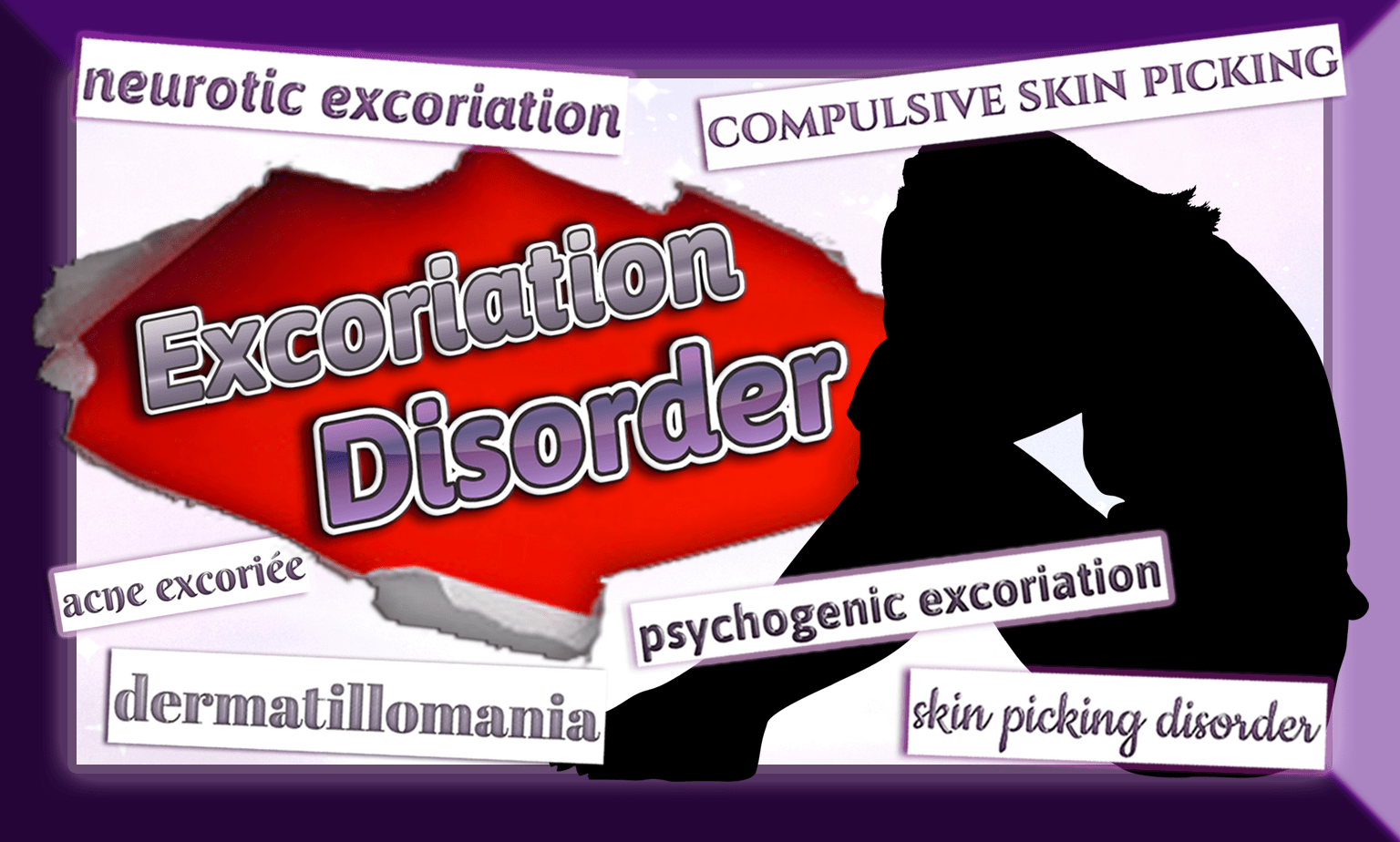Excoriation disorder is a mental health condition that manifests through the compulsive urge to pick, scratch, or tear at one’s own skin. While a natural grooming behavior, 2-5% of the population struggles with skin picking. It falls under the umbrella term body-focused repetitive behaviors (BRFBs), which includes trichotillomania, rhinotillexomania, and scab eating disorder.
In May of 2013, excoriation disorder was added to the fifth edition of the Diagnostic and Statistics Manual of Mental Health Disorders under the Obsessive-Compulsive and Related Disorders category. Before its inclusion in the DSM-5, excoriation disorder was known as dermatillomania, psychogenic or neurotic excoriation, acne excoriée des jeunes filles, and compulsive, chronic, self-injurious, or pathological skin picking.

Diagnostic Criteria for Excoriation Disorder 1
- Recurrent skin picking that results in skin lesions
- Repeated attempts to stop the behavior
- The symptoms cause clinically significant distress or impairment
- The symptoms are not caused by a substance or medical, or dermatological condition
- The symptoms are not better explained by another psychiatric disorder
Compulsive Skin Picking
Skin picking can occur automatically, subconsciously, or during sleep.
People with excoriation disorder often go into a trance-like state where they become preoccupied with removing real or perceived imperfections. The need to pick at one’s skin creates anxiety, which is alleviated after engaging in the behavior but often creates distress due to the visible marks left behind.
How Skin Picking Affects Mental Health
Individuals with excoriation disorder experience social anxiety from the embarrassment and shame of their appearance or inability to manage the urge. It may become isolating, as they may avoid situations where their marks are exposed.
Compulsive skin picking can be a time-consuming behavior, with people often trying to hide damage with clothing and/ or makeup. Skin pickers are more likely to experience depression, low self-esteem, and poor body-image because of how encompassing this disorder is.
Co-Morbidities
Excoriation disorder can be diagnosed alongside other BFRBs, depressive disorders, anxiety disorders, personality disorders, ADHD, and body dysmorphia. It can manifest in individuals with neuro-cognitive disorders (ie, alzheimers) and those who are developmentally disabled, or occur as a result of trauma. Skin picking may also present as a tic disorder (ie, tourette’s syndrome) or serve as a stim for those on the autism spectrum.
Is Skin Picking Self-Harm?
Often mischaracterized as self-injury, most skin pickers do not intentionally cause damage; they want to get rid of an imperfection, and lesions are often the undesired consequences from relieving the urge. Those who self-harm do it intentionally instead of compulsively. They may also engage for the purpose of feeling pain, which skin pickers are able to dissociate from.
Excoriation disorder is still not well-known to the general public or within the medical profession. More awareness for excoriation disorder and other BFRBs is needed to eliminate shame and stigma. Further research and education surrounding these disorders is needed in order to stop discrimination and the spread of misinformation.
References
- Substance Abuse and Mental Health Services Administration. Impact of the DSM-IV to DSM-5 Changes on the National Survey on Drug Use and Health [Internet]. Rockville (MD): Substance Abuse and Mental Health Services Administration (US); 2016 Jun. Table 3.28, Excoriation (Skin Picking) Disorder. Available from: https://www.ncbi.nlm.nih.gov/books/NBK519704/table/ch3.t28/
For quick access to important resources, please visit our linktree page.
Follow Skin Picking Support on Instagram and join us on Facebook.
PHOTO: © WForrest 2008
MODEL: Angela Hartlin
